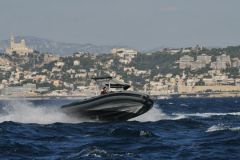Following the official exit of the United Kingdom from the European Union on January 31, 2020, Philip Easthill, Secretary General of European Boating Industry, EBI, the association of national federations of European boating industries, answers questions from BoatIndustry on the upcoming negotiations and the role of its structure.
To begin with, what is your overall vision of the Brexit context for boating?
The British boating industry is a significant producer in the European Union. The United Kingdom has played an important role in the history of yachting and its development. However, it is very difficult to know what will happen in 2021. The one year period, which has already started, is very, very short.
What are the main issues that EBI intends to influence for the yachting sector in the Brexit negotiations?
There are 2 aspects: one from an industrial point of view with imports and exports and the other from the point of view of pleasure boat users. From the industrial point of view, our first priority is to avoid customs duties. The United Kingdom is our closest neighbour. Boating is a small sector. It is also very important that we keep the same standards and regulations. For boaters, there are VAT issues, but also traffic issues. For the Belgian, Dutch or French sailor, he wants to continue to go easily to Great Britain. We are working on the subject with EBA, the European Boating Association, the European yachting federation, as well as for the marinas that are directly concerned.
What is the relationship with the British Marine Federation?
We're in contact. We are waiting for the government documents outlining the broad lines of the negotiation to discuss and work on the proposals together.
Do you work with other organisations and lobbies in Brussels?
Boating and yachting is a small sector. So we work with other industries. EBI is notably a member of The Tourism Manifesto for the tourism aspect and Industry for Europe on the industrial themes that will have a role in the negotiations.










